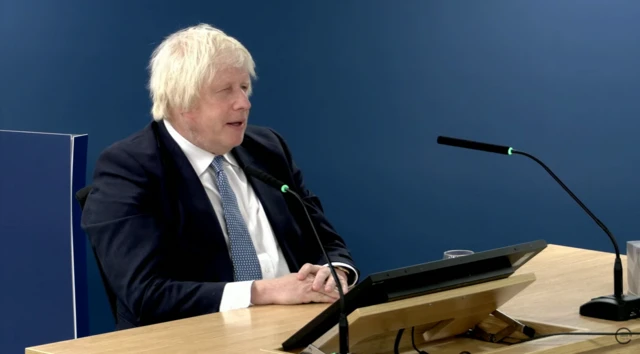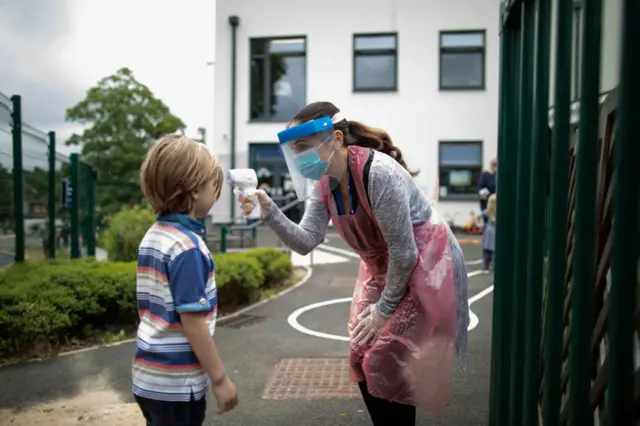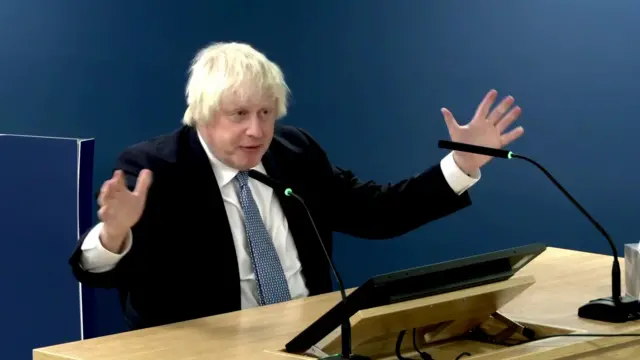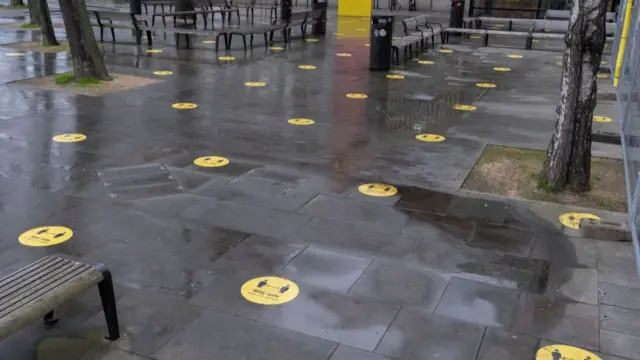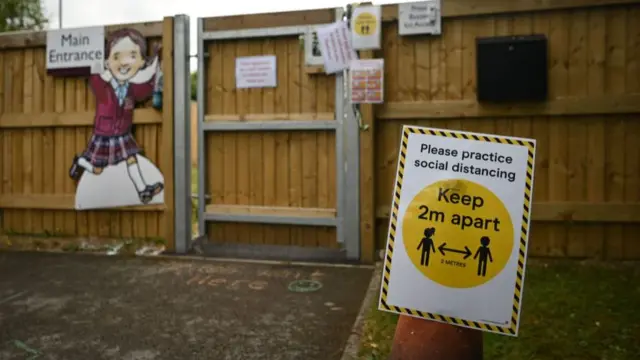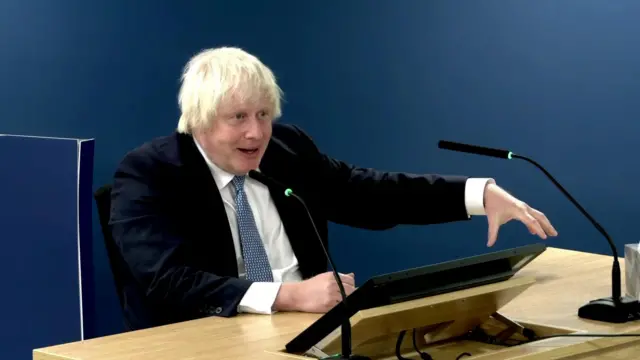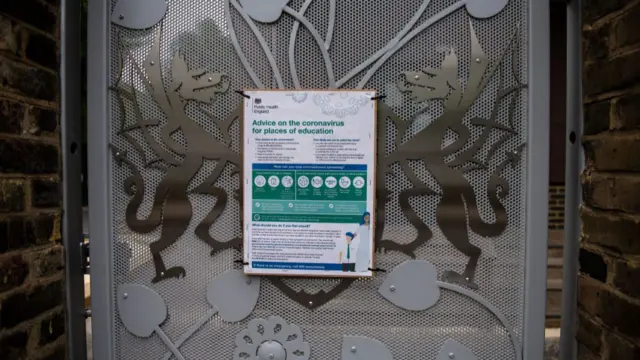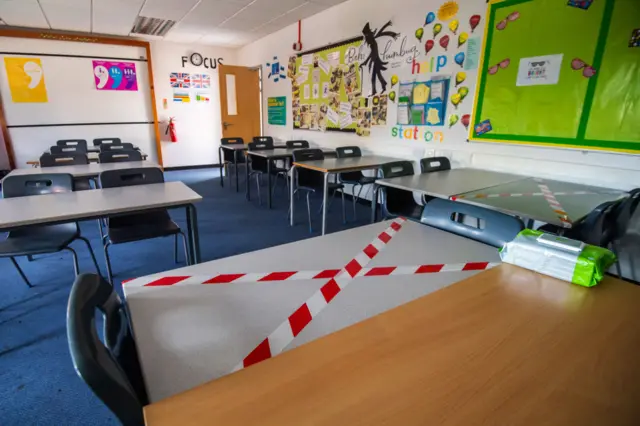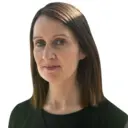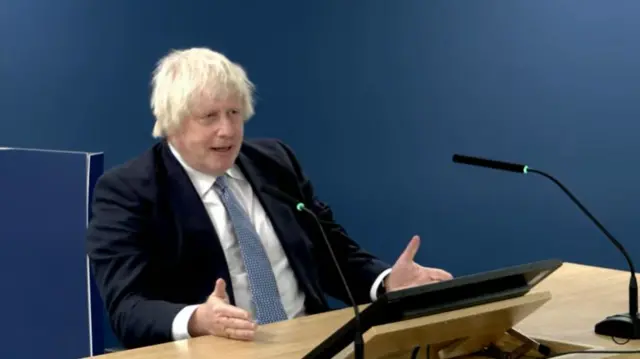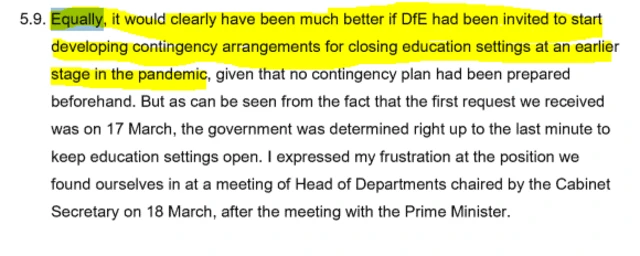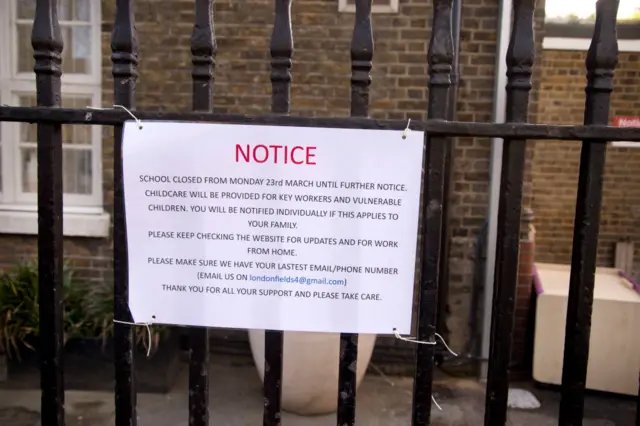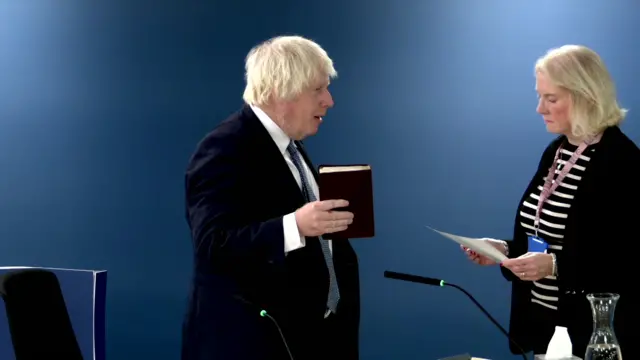Scrapping exams was 'damaging', but Johnson insists 'no way round it'published at 11:05 BST
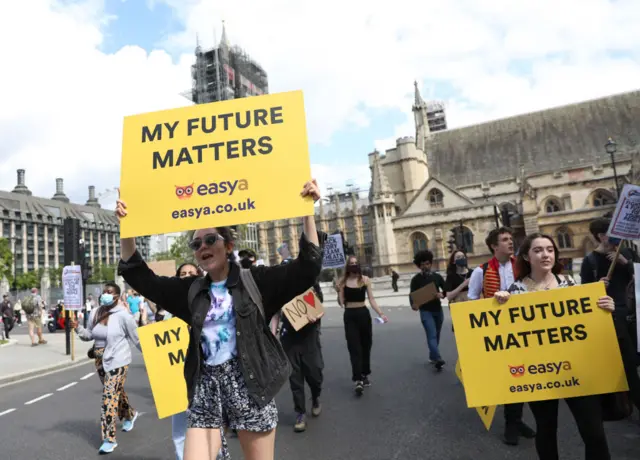 Image source, Getty Images
Image source, Getty ImagesThroughout the summer of 2020, students took park in protests over the government's handling of exam results after A-level and General Certificate of Secondary Education (GCSE) exams were cancelled due to the coronavirus
Counsel to the inquiry Clair Dobbin now turns to the summer of 2020.
She asks Johnson whether he recognised that assessments of GCSE and A Level students - whose grades were initially calculated by an algorithm - was "really damaging" to those children.
Johnson accepts that the idea of scrapping exams was "damaging" and must have been bitterly disappointing to students.
But, he insists it was "part of the package" and says "there was no way round it".
The former PM says Ofqual came up with the grading system, which "plainly let down a lot of kids", but adds that he takes responsibility for getting the wrong model for how to get a substitute for exams.
Dobbin though pushes Johnson on why he didn't develop a different strategy for England when the algorithm failed to deliver fair exam results for Scottish students earlier on in the year.
In the end, Johnson accepts, the solution was to scrap the algorithm.
- For context, in 2021, GCSEs and A-levels cancelled in England because of the pandemic were replaced by grades decided by teachers.
Scrapping exams was 'damaging', Johnson says, but 'no way round it'
